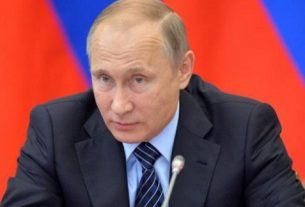Wizz Air says it will suspend all flights to the Moldovan capital Chisinau from 14 March due to concerns about the safety of its airspace.
A Russian missile was fired over Moldovan airspace earlier this month.
Moldova’s civil aviation authority called the airline’s decision sudden and regrettable.
Moldova is one of Europe’s poorest economies and has been heavily exposed to the war in Ukraine.
The airline said: “Safety of the passengers and crew remain Wizz Air’s number one priority…
“Following the recent developments in Moldova and the elevated, but not imminent, risk in the country’s airspace, Wizz Air has made the difficult but responsible decision to suspend all flights to Chisinau from 14 March.”
Moldova’s civil aviation authority said the airline had sought approval for its summer flight schedule on 14 February, and the agency “determined that flights in the national airspace can be carried out safely by following a number of procedures”.
The authority said it would take “all necessary actions” to return Wizz Air to Chisinau airport as soon as possible, and to attract other low-cost airlines.
Wizz Air said there would be more more flights from across Europe to the eastern Romanian city of Iasi, near the Moldovan border, as replacements for the Chisinau service.
Tensions have been on the rise between Moscow and the Moldovan government.
Moldova, wedged between Romania and Ukraine, became a candidate for EU membership last summer.
The country of 2.6 million people has struggled with an influx of refugees from Ukraine and tensions with Transnistria, a breakaway pro-Moscow region where some 1,500 Russian soldiers are stationed.
Earlier this month, Ukrainian President Volodymyr Zelensky said Kyiv’s intelligence service had uncovered a Russian plan to destroy Moldova.
And Moldovan President Maia Sandu has accused Russia of plotting to bring down Moldova’s leadership with the aid of foreign saboteurs from Russia, Serbia, Belarus and Montenegro.
She said their aim would be to attack government buildings, seize hostages and then spark protests to replace the government with one “at the service of Russia”.
Meanwhile, Russia’s defence ministry has alleged, with no evidence, that Ukrainian saboteurs dressed as Russian troops would attack from Transnistria, to provide a pretext for a Ukrainian invasion.__BBC.com





